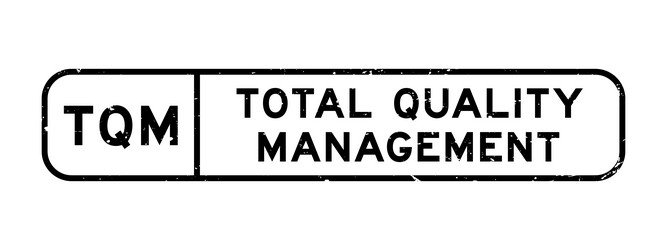Course Overview
The Total Quality Management (TQM) Certification course is designed to equip participants with the knowledge and skills necessary to implement and sustain quality management practices within organizations. This comprehensive training program covers various aspects of TQM, including principles, methodologies, tools, and techniques. Total quality management (TQM) is the continual process of detecting and reducing or eliminating errors in manufacturing, streamlining supply chain management, improving the customer experience, and ensuring that employees are up to speed with training. Total quality management aims to hold all parties involved in the production process accountable for the overall quality of the final product or service.
Key Features Of Total Quality Management Course
- Comprehensive coverage of Total Quality Management (TQM) principles and methodologies
- Focus on customer satisfaction and continuous improvement
- Emphasis on leadership commitment and employee involvement
- Practical application through case studies and real-world examples
- Integration of quality tools and techniques for process optimization
- Training on quality management systems and standards (e.g., ISO 9001)
- Development of skills in problem-solving, teamwork, and communication
- Certification upon successful completion
- Facilitated by experienced instructors with industry expertise
- Flexible learning options, including online and in-person sessions
Why Choose CounselTrain for Total Quality Management Certification in Saudi Arabia?
Choosing CounselTrain for Total Quality Management (TQM) certification in Saudi Arabia is a wise decision due to its reputation for delivering high-quality, authentic training programs. With experienced instructors who possess deep expertise in TQM methodologies, participants can trust CounselTrain to provide comprehensive and relevant education. CounselTrain’s commitment to practical learning experiences, incorporating real-world case studies and simulations, ensures that participants are well-prepared to apply TQM principles effectively in their workplaces.
Target Audiance
- Operations managers responsible for managing projects and operations within the organization.
- Quality managers responsible for ensuring adherence to quality standards in terms of operations as well as product and/or service delivery.
- Senior leaders of an organization who need to understand the importance of training employees on total quality management.
- Internal and external auditors who need to ensure that the systems set up for quality management are delivering the desired results.
- Human resource professionals and other stakeholders involved in building a quality-sensitive culture.
Schedule Dates
Total Quality Management – TQM
Total Quality Management – TQM
Total Quality Management – TQM
Total Quality Management – TQM
Course Content
- Definition
- History
- Critical success factors
- Commitment from management
- Employee empowerment
- Continuous improvement
- Customer focus
- Process-centered
- Integrated system
- Strategic and systematic approach
- Fact-based decision making
- Effective communication
- Planning phase
- Doing phase
- Checking phase
- Acting phase
- Benchmarking
- Failure analysis
- PDCA (Plan–do–check–act) cycle
- Process management
- Product design control
- Statistical process control
- Ethics
- Integrity
- Trust
- Training
- Teamwork
- Leadership
- Recognition
- Communication
- Increased awareness of quality culture organization-wide
- Special emphasis on teamwork
- Commitment towards continuous improvement
- Cost and defect reduction
- Increased customer satisfaction
- Identify the need for change
- Clarify vision and mission with management and employees
- Survey key customer groups
- Identify critical success factors (CSFs)
- Map major processes/sub-processes
- Train and re-train employees
- Develop improvement plan
- Measure and report
- Constraints by quality culture
- Autocratic style of leadership
- Lack of employee commitment
- Improper channel of communication
- Quality certifications regarded as bureaucratic exercise
- Problems identifying customer needs
Total Quality Management (TQM) Training Course In Saudi Arabia
In Saudi Arabia, Total Quality Management (TQM) training courses serve as essential resources for professionals and organizations committed to achieving excellence in quality and performance. Through a blend of theoretical knowledge and practical applications, participants learn to identify opportunities for improvement, implement quality management systems, and drive continuous improvement initiatives within their organizations. With a focus on real-world case studies and industry-relevant examples, these courses prepare participants to tackle the unique challenges of quality management in Saudi Arabia diverse business landscape. By investing in TQM training, professionals and organizations in Saudi Arabia can enhance their competitiveness, improve operational efficiency, and achieve sustainable growth in today’s dynamic marketplace.
FAQs
Obtaining a TQM certification demonstrates your commitment to implementing and managing quality initiatives within your organization, enhancing your skills to contribute to overall business excellence.
The course typically covers key TQM principles, methodologies, and tools such as process management, continuous improvement, customer focus, leadership, and employee involvement.
Yes, TQM Certification is recognized globally. Organizations worldwide value professionals who are certified in Total Quality Management, as it indicates a commitment to quality standards and continuous improvement practices.
TQM Certification may have an expiration date, and professionals may need to renew their certification periodically. Renewal requirements often include continuing education, professional development, or demonstrating ongoing involvement in quality management initiatives. It’s essential to check with the certifying body for specific renewal criteria.
The TQM Certification course is typically open to professionals at various levels in an organization, including managers, quality assurance professionals, and those involved in process improvement.

 4.9
4.9




